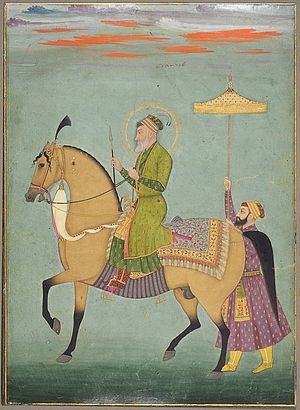As more and more Indians gain access to the internet, and seek out questions and answers about their pre-modern history, they are likely to discover the work of various Western scholars. One of these is Audrey Truschke, assistant professor of history at Rutgers University, and author of the book Aurangzeb: The Life and Legacy of India’s Most Controversial King. The book argues that the Mughal Emperor Aurangzeb was a more complex and nuanced character than the popular caricature of him as an intolerant Muslim despot. Truschke has since become particularly active on Twitter; a visitor to her handle can witness constant debate on Indian history, historiography, as well as ample trolling. While there are definitely many articles that legitimately critique her work (and one need not agree with all her conclusions), particularly if scholarly and well-thought out arguments are presented, what is notable and disturbing is that much of the criticism and trolling against her takes the form of ad hominem attacks, unprovable accusations, and a resort to heresy rather than fact. In this interview, Truschke reflects on the state of historical thinking in India.
You’ve become quite well-known in some circles on Twitter, particularly among Hindu-right trolls. Can you briefly explain why your research on Aurangzeb and other Mughals sets these people off so much: why is there so much hysteria?
The Hindu Right grounds some of its key claims, especially about Indian culture, on fabricated history. As a result, trained historians imperil the very foundation of the Hindu Right and its divisive worldview. My work on Aurangzeb shows that he was a complicated king who, in many ways, followed Indian norms of rulership of his day. It is impossible to square such a view, grounded in solid history and in-depth research, with the Hindu Right’s caricature of a Hindu crushing jihadi.
Why do you think that some people seem to be unable to have pride in their Indian heritage without making things up, such as the claim that various Indian deities were ministers in ancient times, or the oft repeated claim that ancient Indians invented nuclear weapons and the like?
Some Indians have applied the standards of modern society, quite inappropriately, to the South Asian past. Scholars underscore repeatedly that, as one Sanskritist has put it, “There is no shame in premodernity.” But, for some in contemporary India, the only relevant standards for cultural pride are modern and, often, militaristic, which can lead to absurd claims about ancient history.
I have noticed a lack of nuance among many of your trolls/followers on Twitter when it comes to history, with users frequently treating historical figures and their actions in binary terms. Firstly, do you think Indian society is ready for the sort of nuanced discussion and debate that modern scholarship entails? And moreover, where does this attitude come from? Are politics responsible, or perhaps the quality/approach to education and historical thinking in India?
Many sectors of Indian society are having nuanced discussions about history, and I am thrilled to be able to play a small role in fostering some of those conversations. The trolls may be the loudest, but they are not the only voices or even the majority. I hear from people regularly, often privately, about how my Aurangzeb book made them rethink their views or sparked debate among their family and friends. Binary terms are seductive because of their simplicity, but history is enthralling, in part, because of its complexity.
Is it reasonable to argue that history, at least in the popular sense, is more than just scholarship and the study of primary sources, because popular historical figures are re-appropriated by the public as folk heroes (for example, Shivaji)? How can this be squared with more serious scholarship, when trying to explain research to the general populace? How can history remain both popular and accurate in India?
There are real conflicts between popular mythology and actual history. I offer a clear-eyed account of certain aspects of India’s rich history for those who care to learn about it. Those that prefer to value belief over evidence and analysis are free to do so, but this decision removes them and their views of the past, no matter how heartfelt, from the realm of history.
It is clear from your work that you are deeply passionate about India, a country that you have long studied. Why is it then that so many people claim that you, and scholars such as yourself (Wendy Doniger, Sheldon Pollock, etc.) have a “hidden agenda” to “smear” Indian culture, instead of just disagreeing with your conclusions?
People often levy ad hominem attacks when they have nothing else in their arsenal. Few, if any, of my detractors can compete with me intellectually, not to mention the intellectual giants that are my teachers. And so they turn to the only weapon they have: character assassination, often of a vile nature that plays on sexist, racist, and anti-Semitic slurs.
Trying to see things from the other side, it is possible that Western scholars may have a partial methodological bias, because of the very nature of modern academic scholarship? Moreover, one can argue that it is difficult to disentangle one’s worldview from their work, and most Western scholars are coming from a secular-liberal position. Would you say this creates a gulf of understanding between Western scholarship and many Indians?
Indian scholars have been contributing to and shaping the disciplines of both history and Indology for decades, and many of the best minds do not work from a faith-based perspective. In other words, there is not a Western versus Indian divide when it comes to scholarly approaches and methodology. Some Indians, along with some Westerners, have rejected historical method as a valid approach to reconstructing India’s past, but there is nothing intrinsically or uniquely “Indian” about that choice.

































